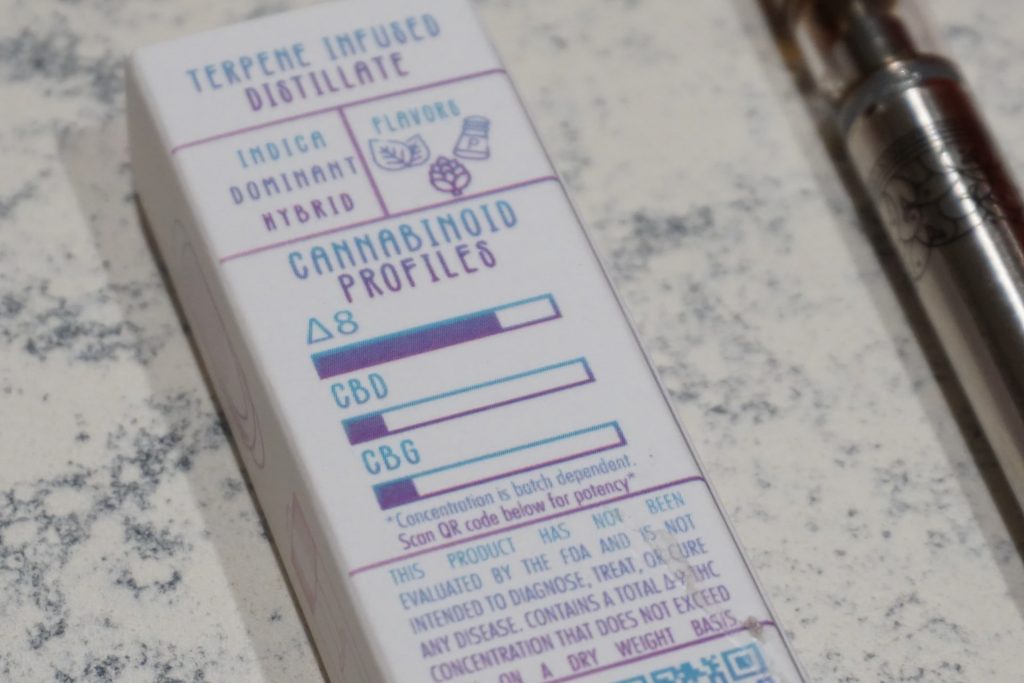The DEA says two neo-cannabinoids that have recently appeared in various products sold in the US do not meet the federal definition of legal hemp. Asked about the legal status of Δ8 THC-O and Δ9 THC-O, two THC ester acetates, the DEA said the two neo-cannabinoids “do not occur naturally in the cannabis plant and can only be obtained synthetically, and therefore do not meet the definition of hemp.”
DEA Bans Certain Neo-Cannabinoids


The Drug Enforcement Administration (DEA) says two neo-cannabinoids that have recently appeared in various products sold in the United States do not meet the federal definition of legal hemp and are therefore considered illegal controlled substances.
For more news like this, download our free cannabis news app.
DEA Says Δ8 and Δ9 Not Natural, Therefore Not Hemp
Asked about the legal status of delta-8 THC-O and delta-9 THC-O, two THC ester acetates, the DEA said the two neo-cannabinoids “do not occur naturally in the cannabis plant and can only be obtained synthetically, and therefore do not meet the definition of hemp.”
“Delta-9-THCO and delta-8-THCO are tetrahydrocannabinols with chemical structures and pharmacological activities similar to those contained in the cannabis plant,” the letter from Terrence L. Boos, chief of the DEA’s Drug & Chemical Evaluation Section.
A New Market for Neo-Cannabinoids
Since the 2018 Farm Bill legalized hemp containing up to 0.3 percent THC delta-9 on a dry weight basis, the market for natural and synthetic neo-cannabinoids has grown in the U.S., especially in states that have not yet legalized cannabis.
While there are many neo-cannabinoids, one of the best known is delta-8 THC, which can be produced synthetically from CBD but is also present in trace amounts in the cannabis plant. Several states have worked to regulate this product, which, unlike CBD, has intoxicating effects.
DEA officials have indicated that delta-8 THC products are not controlled substances as long as they are extracted from the natural plant and not synthesized.
A federal appeals court, meanwhile, ruled last year that delta-8 is not controlled because the Controlled Substances Act (CSA) explicitly speaks only to naturally occurring delta-9 THC and because federal law defines hemp as “any part” of the cannabis plant, including “all derivatives, extracts, [and] cannabinoids” that contains less than 0.3% delta-9 THC by weight.
What About the THC-O Neo-Cannabinoids?
The DEA analysis concluded that, unlike delta-9 THC and delta-8 THC, THC-O is not a natural cannabinoid. Since it can only be produced synthetically, it is federally prohibited.
“While the DEA’s latest statement does not clarify the legal status of all new hemp-derived cannabinoids, it does state that the DEA believes Delta-9 THCO and Delta-8 THCO are controlled substances,” Michelle Bodian, a partner at the law firm of Vicente Sederberg, told Marijuana Moment.
“Hopefully, Congress will take action soon to address the legality of all hemp-derived cannabinoids so that the industry is not left with a patchwork of laws, regulations, policies, and now letters.”
Danger From Neo-Cannabinoids Result of Prohibition
Advocacy organizations like NORML have warned against using these lesser-known and unregulated neo-cannabinoids.
The U.S. association believes that the patchwork regulatory framework and the resulting confusion for consumers and the market could be effectively resolved if the federal cannabis ban were lifted and people were given the option to use natural cannabis products, removing the demand for these synthetic neo-cannabinoids, especially in states where cannabis remains illegal.
“Whether synthetic or natural, psychoactive cannabinoids must be responsibly regulated to protect public health and safety,” Aaron Smith, CEO of the National Cannabis Industry Association (NCIA), told Marijuana Moment.
“The only way to successfully achieve this goal is to finally end national prohibition, adopt reasonable regulations at the federal level, and allow state cannabis laws to continue to operate across the country.”
—
(Featured image by Elsa Olofsson via Unsplash)
DISCLAIMER: This article was written by a third-party contributor and does not reflect the opinion of Hemp.im, its management, staff, or its associates. Please review our disclaimer for more information.
This article may include forward-looking statements. These forward-looking statements generally are identified by the words “believe,” “project,” “estimate,” “become,” “plan,” “will,” and similar expressions. These forward-looking statements involve known and unknown risks as well as uncertainties, including those discussed in the following cautionary statements and elsewhere in this article and on this site. Although the company may believe that its expectations are based on reasonable assumptions, the actual results that the company may achieve may differ materially from any forward-looking statements, which reflect the opinions of the management of the company only as of the date hereof. Additionally, please make sure to read these important disclosures.
First published in Newsweed, a third-party contributor translated and adapted the article from the original. In case of discrepancy, the original will prevail.
Although we made reasonable efforts to provide accurate translations, some parts may be incorrect. Hemp.im assumes no responsibility for errors, omissions or ambiguities in the translations provided on this website. Any person or entity relying on translated content does so at their own risk. Hemp.im is not responsible for losses caused by such reliance on the accuracy or reliability of translated information. If you wish to report an error or inaccuracy in the translation, we encourage you to contact us.



Comments are closed for this post.